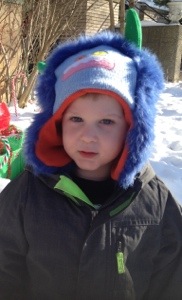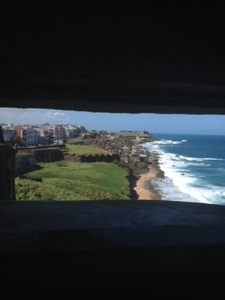Let’s talk about my mom. It’s time, don’t you think? I’ve been putting this off for a while because, well, it’s hard for me to talk bad about my mom. But if you’re really going to know me, then you need to hear this. I’ve mentioned it once before, but my mom was a slut.
If you ever met my mom – you know who you are – you’re probably laughing right now. Go ahead, I’ll wait. Okay, okay, wipe the tears off your face and hear me out. It’s true, that doddering old lady you remember truly was a slut. I know, it’s not easy to comprehend. I probably sound insane to you.
Let me think. My mom grew up in the 50s, long before the women’s movement and the hippie years. She messed around in high school and barely began to explore her slutty tendencies before she married a jerk at nineteen. The jerk fucked around on her before he walked out and took their ten-year-old daughter – my sister – with him.
Now, if you’re still paying attention, this is when my mom made a break for the dark side. I wasn’t around yet, so I can’t give you the gritty details. All I really know, I learned from my sister on a gruesome night at the beach that began with an argument and ended with me lying awake on the floor of a scummy motel bedroom listening to the sounds of my sister fucking her girlfriend. So let’s take a detour.
Yes, the night began with a screaming fight. “You don’t know what it was like,†Kim screamed.
“What?†I asked. I was fifteen. I still trusted her.
“Mommy used to be different,†she always called her Mommy.
I stared at her in disbelief.
“She used to have men over every night,†Kim yelled. “I used to lay awake, listening to them. Yeah,†she screamed. “You have no idea. They used to come knocking at the back door late at night, calling her,†her voice was shrill. You know she enjoyed hurling those truths at me.
My sister hated me. It’s a truism and it’s beside the point. I mean, come on, if you watched your slut mom completely reinvent herself for your bratty little sister, if you watched her swear off men altogether, learn to put a dinner on the table every day, learn to keep a house, learn how to love for God’s sake, you would hate the object of her affection too.
My fifteen-year-old self had a lot of trouble handling the truth. See, my mom never fucked around while I lived at home. From when I was too little to remember until I went away to college, my mom was celibate. She threw the word around like a prayer. So from that night at the beach until I saw for myself how much men could destroy her, I denied the truth about my mom. I watched my sister walk out of our lives into the shady underworld of drugs and I was a little bit glad to see her go.
My mom clung to her celibacy until I left home. She avoided sex even while I didn’t, and as a parent I’ve got to admire that kind of dedication. But don’t you know that just about the minute I traded in my bedroom for a dorm room, she found a creep at Walmart and started fucking him? I was disappointed at first, and then it got worse. She found a – what do you call it – a sugar baby? Some black guy a good twenty years younger than her with a penchant for running up credit card bills and beating on old white ladies while he was fucking them. Yeah, great, I know. I kind of avoided home while that was going on. Then she found Mike the used-car salesman, and you know how that ended up.
So, you know, maybe I should love celibacy. Maybe I should be thanking my lucky stars. My mom’s celibacy gave me a normal life. I grew up thinking the best of my mom, never having to deal with the truth. But you know what? Celibacy just put a cork in my mom’s life, it didn’t solve any of her problems. In the end, my mom ended up dying for some guy she met in a phone sex chat room. Once a slut, always a slut. I hate self-denial.






